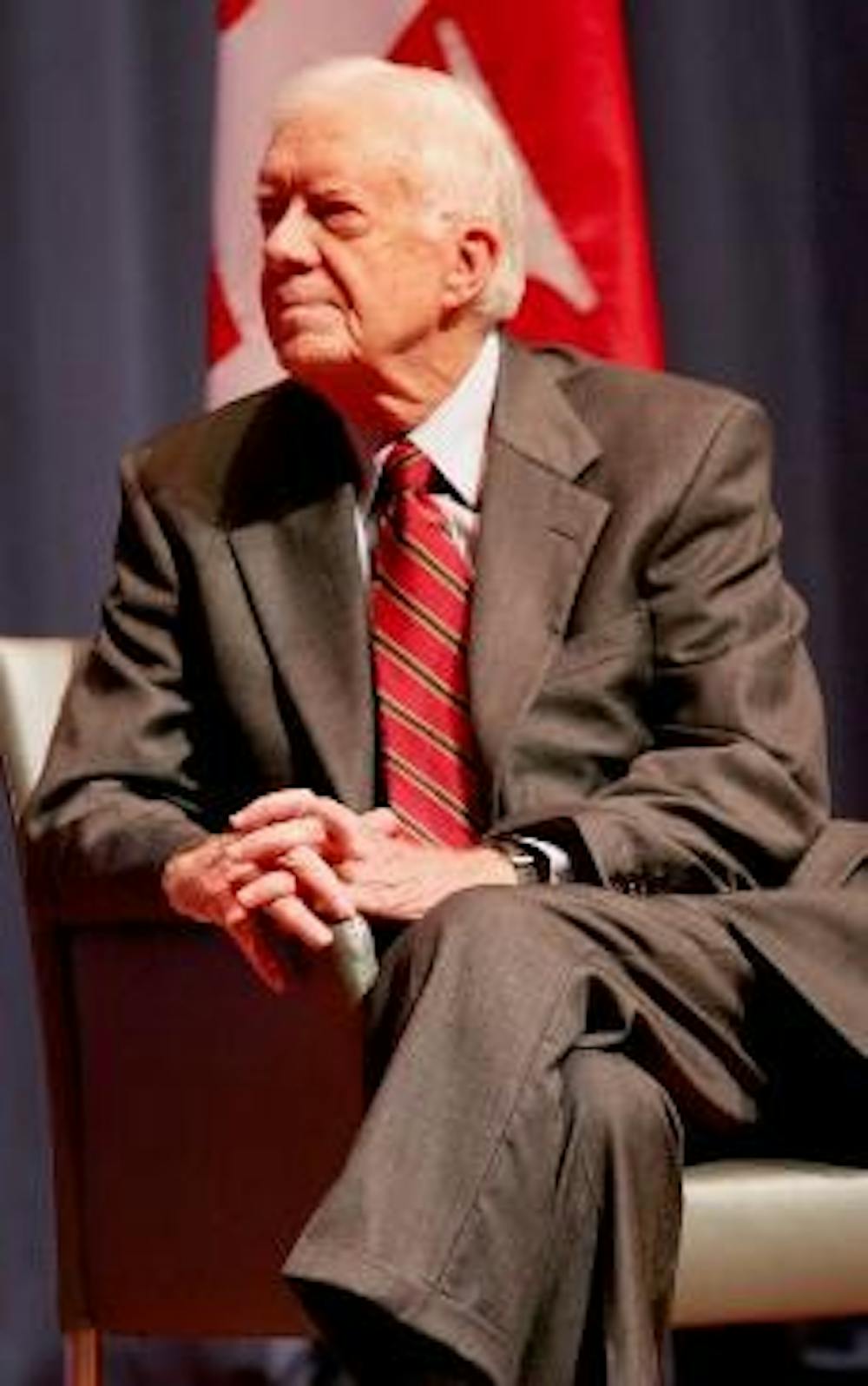Although rebel militants have killed nearly 200,000 black Darfurians, the conflict in Sudan is by no means genocide, former President Jimmy Carter told the AU community Wednesday.
"That's an atrocity that's only been demonstrated two times in my lifetime," Carter told approximately 200 audience members. "The first was Adolph Hitler's persecution of the Jews ... and the other [was] Rwanda, when the Hutus decided to kill the Tutsis. That's not the case in Darfur. There has been no effort on the part of the central government [in Khartoum] to kill all of the black people of Darfur."
Carter's speech, held in the Katzen Arts Center's Abramson Family Recital Hall, marked the end of the Elders' Mission to Sudan, a fact-finding endeavor organized by AU Vice President of International Affairs Robert Pastor, according to a press release.
A group of 10 former political leaders comprise the Elders, including Nelson Mandela and Archbishop Desmond Tutu. They assembled in July to tackle the world's most pressing and intractable issues, Carter said.
"I was asked to participate in an exciting, promising, helpful organization ... a group of political has-beens," Carter joked with the audience. "We are very grateful that in this first phase, AU has played a key role ... the staff here have been superb."
Yet Jacob Locke, a freshman in the School of International Service and a member of AU's Darfur Action organization, said he slightly doubted Carter and the Elders, since both failed to address the conflict in Darfur as genocide.
"As much as I respect what he's done, genocide is the systematic and targeted killing of an ethnic group," Locke said. "That's exactly what the government has done - it has to be addressed first."
Instead, Carter emphasized the Comprehensive Peace Agreement, a treaty signed between the Sudanese government in Khartoum and rebel leaders in the south. The agreement was the "best President Bush could have done" to prevent another war, he said.
The Elders' two other major concerns are oil and elections, Carter said.
Militant groups and political leaders constantly vied for control over the nation's scarce and valuable resources, and that struggle far transcended the ethnic boundaries of genocide, the former president said.
Laurie Moy, a first-year graduate student in the School of Communication, said she agreed with Carter's analysis of Sudan, noting she expected "nothing less."
"I thought he spoke to the situation, not to the sound bytes," Moy said. "It was great, he was very optimistic ... and I'm intrigued by the Elders, though whether or not they can push policy is yet to be seen."
But Heather Burns, a sophomore in SIS, said she took little issue with Carter's dismissal of the situation in Darfur as a genocide. Instead, she was more upset by how Student Activities organized and promoted the event.
"Only allowing 100 students made it intimate, but it wasn't great ... it would have been better in a bigger arena," Burns said. "Some students didn't even get the e-mail announcement because they were in class. It seemed really unfair"





